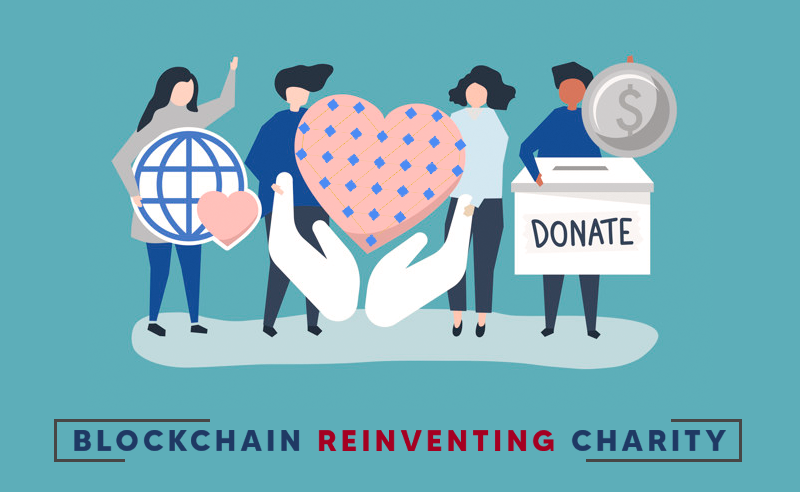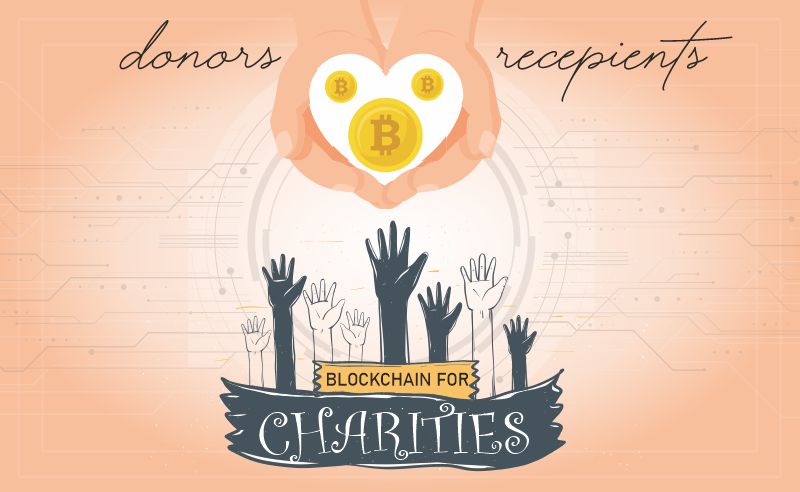Table of Contents
As per Webster dictionary, “Charity” is defined as the art of being generous and helpful towards those who are in need by offering them money, food, clothes, or any other tangibles. Charity is considered as one of the acts of doing good to fellow beings all across the globe. For many years, this act of charity has been declining due to increasing skepticism related to transparency of the utilization of funds. Series of scandals are changing the perception of philanthropists and reducing their trust in charitable organizations. However, the recent advent of Blockchain technology has started giving the ray of hope to the charity industry. Blockchain technology has the potential to resurrect the images of charities who are willing to adopt the services based on their network. In this article, we shall explore the challenges that the charity industry is facing and new avenues of “Blockchain for Charities”.
Challenges Faced By Charity Industry | Blockchain For Charities

According to reports from various research firms, charity industry is facing the following challenges which is hampering the image of the organizations associated with industry:
- Lack of transparency regarding the utilization of funds of donors.
- Increasing overhead expenses for maintaining the administration actually reduces the money which is meant to reach the needy people
- Wastage of time in administering the documents, completing paperwork, and settling up the ledger accounts.
- Misreporting of expenses by some of the fake charity houses due to lack of traceability of funds.
- Settlement times are highly slow while transferring the funds from charities to beneficiaries.
- Donations sometimes piled up in the pockets of the corrupt official involved in immuting the records of ledger
- Problem in receiving the funds from abroad or across the international borders.
Blockchain technology is still underutilized in Blockchain charity donations and other solutions in the charity industry, but even a few of the solutions are doing magic to industry and slowly revamping the image of the particular sector.
Blockchain Reinventing Charity Industry | Blockchain For Charities
UN World Food Programme, one of the renowned names in the charity industry has recently conducted a Blockchain-based test project to supply the items to refugees in Jordan. With the help of Biometric technology, iris were scanned of refugees to provide them food, and the record of the refugees was maintained on the Blockchain network. And the whole exercise was speedy, and food reached the maximum of refugees.

With the help of best Blockchain solutions, we can
- Track the contribution of donors, making the system more accountable and reducing corruption.
- Reduce the transaction fees inside and outside the borders encouraging the donors to contribute more.
- Maintain the records on distributed ledger making the accounts transparent.
- Offer immediate financial support to the victims trapped in disaster or any natural calamity.
- Decrease the cost of maintaining administration and bookkeeping tasks, leaving the huge amount for contribution.
- Utilize solutions like smart contracts, stable coins, and many more to maintain the efficiency of the system.
Blockchain technology could restore some of the credibility lost which will ultimately increase the trust of the public. Blockchain grants can aid in strengthening the network between donors, recipients, and other stakeholders involved in the charity industry.
Blockchain For Charities | Donors | Recipients

For Donors
“Trust deficit” is currently the major factor for the falling contributions in the charity industry. Allegations of aggressive fundraising practices, a huge surplus of cash, mismanagement of records, and many more had engulfed the charity sector. But with the help of Blockchain technology, the trust of the donors can be regained by:
- Increasing the involvement of donors by giving them the voting rights after the evaluation of contribution maintained on distributed ledger.
- Enabling visibility and traceability of transactions allowing the donors to track the transaction from beginning till the funds reach intended targets. This would also help donors in making informed decisions.
- Reducing transaction fees and making the transaction at higher speed will increase the credibility of charitable organizations as the monetary benefits will be reached at the time when they are actually needed.
- Elimination of intermediaries while transferring the funds can increase the confidence and may encourage donors to contribute more.
- Non-immutability of data can redefine the credence of the charity industry as once recorded transactions cannot be altered by any of the corrupted officials.
For Recipients
Recipients nowadays not receiving the funds which have actually been contributed due to the overhead expenses, cost incurred in transactions, administrative expenses, and many more. With the help of Blockchain technology, they can receive more money than money would otherwise as the expensive transfer mechanisms will be bypassed. Fraudulent intermediaries will be reduced which will ultimately increase the funds transferred to the recipients.
Blockchain Charity Projects

Blockchain charity projects are impacting the charity sector by decreasing the massive financial and legal intermediaries. Some of the popular projects are:
- Alice: Startup based on Blockchain technology which helps in increasing the traceability of the funds donated and the impacts their money is creating. This startup is involved in rebuilding the trust as it offers innovative solutions to ensure that donation is utilized judiciously.
- Bithope: Company involved in the promotion of increasing the charity Bitcoin crowdfunding. Bithope is giving the chance to charity organizations to receive the funds all across the world along with anonymous contributions, proving as one of the best Blockchain charity companies.
- Cleanwater: Cryptocoin named as Cleanwater coin is exclusively designed to be used by non-profit organizations. As its name suggests, it encourages the community to provide contributions for the cleanliness of the water.
- Pinkcoin: Cryptocurrency named as Pinkcoin was developed to make donations easier. This coin also encourages the donors by rewarding them through its unique feature of staking technologies. It focuses on increasing the peer-to-peer transactions, thereby reducing the intermediaries and chances of fraudulently.
- GiveTrack: For real-time financial transparency, GiveTrack is one of the best solutions in Blockchain for charities. It offers you the feature to track your donations from any part of the globe.
Summing Up
The popularity of Blockchain technology is increasing day-by-day across the world not among the financial sectors but in every other sector which needs to maintain transparency, security, low transaction fees, quicker transactions, decentralization, and many more. Blockchain in charities is still in the nascent stage which needs to be explored for improving the efficiency of the industry especially reducing the trust deficit. Blockchain-based philanthropy can prove to be a noble way of giving, distributing, and accepting donations.

